William Holden
Born William Franklin Beedle Jr.
April 17, 1918 O'Fallon, Illinois, U.S.
Died November 12, 1981 (aged 63) Santa Monica, California, U.S.
Alma mater Pasadena Junior College
Occupation Actor Years active 1938–1981
Political party Republican
Spouse Brenda Marshall (m. 1941; div. 1971)
Partner(s) Stefanie Powers (1972–1981; his death)
Children 4
Awards
Academy Award for Best Actor (1953)
Primetime Emmy Award for Outstanding Lead Actor (1974)
William Holden (born William Franklin Beedle Jr.; April 17, 1918 – November 12, 1981) was an American actor, and one of the biggest box office draws of the 1950s.
Holden won the Academy Award for Best Actor for the film Stalag 17 (1953) and the Primetime Emmy Award for Outstanding Lead Actor in a Limited Series or Movie for the television miniseries The Blue Knight (1973).
Holden starred in some of Hollywood's most critically acclaimed films, including Sunset Boulevard (1950), Sabrina (1954), Picnic (1955), The Bridge on the River Kwai (1957), The Wild Bunch (1969), and Network (1976).
He was named one of the "Top 10 Stars of the Year" six times (1954–1958, 1961), and appeared as 25th on the American Film Institute's list of 25 greatest male stars of Classical Hollywood cinema.
Early Life and Education
With Lee J. Cobb (right) in Holden's first starring role in a film, Golden Boy (1939).
Holden was born William Franklin Beedle, Jr., on April 17, 1918, in O'Fallon, Illinois, the son of Mary Blanche Beedle (née Ball), a schoolteacher, and her husband William Franklin Beedle, an industrial chemist.
He had two younger brothers, Robert Westfield Beedle and Richard Porter Beedle.
One of his father's grandmothers, Rebecca Westfield, was born in England, while some of his mother's ancestors settled in Virginia's Lancaster County after emigrating from England in the 17th century.
His brother Robert ("Bobbie") became a U.S. Navy fighter pilot and was killed in action in World War II
over New Ireland, a Japanese-occupied island in the South Pacific.
His family moved to South Pasadena when he was three.
After graduating from South Pasadena High School, Holden attended Pasadena Junior College,
where he became involved in local radio plays.
Paramount
Holden appeared uncredited in Prison Farm (1939) and Million Dollar Legs (1939) at Paramount.
A version of how he obtained his stage name "Holden" is based on a statement by George Ross of Billboard: "William Holden, the lad just signed for the coveted lead in Golden Boy, used to be Bill Beadle. And here is how he obtained his new movie tag. On the Columbia lot is an assistant director and scout named Harold Winston. Not long ago, he was divorced from the actress Gloria Holden but carried the torch after the marital rift. Winston was one of those who discovered the Golden Boy newcomer and who renamed him—in honor of his former spouse!"
Golden Boy
Holden's first starring role was in Golden Boy (1939), where he played a violinist-turned-boxer.
The film was made for Columbia, which negotiated a sharing agreement with Paramount for Holden's services.
Holden was still an unknown actor when he made Golden Boy, while Barbara Stanwyck was already a film star. She liked Holden and went out of her way to help him succeed, devoting her personal time to coaching and encouraging him, which made them lifelong friends. When she received her Honorary Oscar at the 1982 Academy Awards ceremony, Holden had died in an accidental fall at home just a few months prior.
At the end of her acceptance speech, she paid him a personal tribute: "I loved him very much, and I miss him. He always wished that I would get an Oscar. And so tonight, my golden boy, you got your wish."
Next, he starred with George Raft and Humphrey Bogart in the Warner Bros. gangster epic Invisible Stripes (1939), billed below Raft and above Bogart.
Back at Paramount, he starred with Bonita Granville in Those Were the Days! (1940) followed by the role of George Gibbs in the film adaptation of Our Town (1940), done for Sol Lesser at United Artists.
Columbia put Holden in a Western with Jean Arthur, Arizona (1940), then at Paramount he was in a hugely popular war film, I Wanted Wings (1941) with Ray Milland and Veronica Lake.
He did another Western at Columbia, Texas (1941) with Glenn Ford and a musical comedy at Paramount,
The Fleet's In (1942) with Eddie Bracken, Dorothy Lamour, and Betty Hutton.
He stayed at Paramount for The Remarkable Andrew (1942) with Brian Donlevy,
then made Meet the Stewarts (1943) at Columbia.
Paramount reunited Bracken and him in Young and Willing (1943).
World War II
Holden served as a second and then a first lieutenant in the United States Army Air Force during World War II, where he acted in training films for the First Motion Picture Unit, including Reconnaissance Pilot (1943).
Post-war
Holden's first film back from the services was Blaze of Noon (1947), an aviator picture at Paramount directed by John Farrow. He followed it with a romantic comedy, Dear Ruth (1947) and he was one of many cameos in Variety Girl (1947). RKO borrowed him for Rachel and the Stranger (1948) with Robert Mitchum and Loretta Young. Holden starred in the 20th Century Fox film Apartment for Peggy (1948). At Columbia, he starred in film noirs, The Dark Past (1948), The Man from Colorado (1949), and Father Is a Bachelor (1950).
At Paramount, he did another Western, Streets of Laredo (1949).
Columbia teamed him with Lucille Ball for Miss Grant Takes Richmond (1949)
and the sequel to Dear Ruth, Dear Wife (1949).
Sunset Boulevard with Gloria Swanson in Sunset Boulevard (1950)
Holden's career took off again in 1950 when Billy Wilder tapped him to play a down-at-heel screenwriter taken in by a faded silent film actress (Gloria Swanson) in Sunset Boulevard. Holden earned his first Best Actor Oscar nomination for the role.
Getting the role was a lucky break for Holden, as Montgomery Clift was initially cast but backed out of his contract. Swanson later said, "Bill Holden was a man I could have fallen in love with. He was perfection on- and off-screen." And Wilder commented "Bill was a complex guy, a totally honorable friend. He was a genuine star. Every woman was in love with him." Paramount reunited him with Nancy Olson, one of his Sunset Boulevard costars, in Union Station (1950).
Holden had another good break when he was cast as Judy Holliday's love interest in the big-screen adaptation of the Broadway hit Born Yesterday (1950). He made two more films with Olson: Force of Arms (1951) at Warner Bros. and Submarine Command (1951) at Paramount. Holden did a sports film at Columbia, Boots Malone (1952), then returned to Paramount for The Turning Point (1952).
Stalag 17 and the peak of stardom
Holden was reunited with Wilder in Stalag 17 (1953), for which Holden won the Academy Award for Best Actor. His acceptance speech at the 26th Academy Awards was one of the shortest in Oscar history:
"Thank you. Thank you."
His success in Stalag 17 ushered in the peak years of Holden's stardom.
He made a sex comedy with David Niven for Otto Preminger, The Moon Is Blue (1953), which was a huge hit,
in part due to controversy over its content.
At Paramount, he was in a comedy with Ginger Rogers that was not particularly popular, Forever Female (1953). A Western at MGM, Escape from Fort Bravo (1953) did much better, and the all-star Executive Suite (1954) was a notable success.
Sabrina with Audrey Hepburn in Sabrina (1954)
Holden made a third film with Wilder, Sabrina (1954), billed beneath Audrey Hepburn and Humphrey Bogart. Holden and Hepburn became romantically involved during the filming, unbeknownst to Wilder: "People on the set told me later that Bill and Audrey were having an affair, and everybody knew.
Well, not everybody! I didn't know." The interactions between Bogart, Hepburn, and Holden made shooting less than pleasant, as Bogart had wanted his wife, Lauren Bacall, to play Sabrina.
Bogart was not especially friendly toward Hepburn, who had little Hollywood experience, while Holden's reaction was the opposite, wrote biographer Michelangelo Capua. Holden recalls their romance:
Before I even met her, I had a crush on her, and after I met her, just a day later, I felt as if we were old friends, and I was rather fiercely protective of her, though not in a possessive way.
Their relationship did not last much beyond the completion of the film. Holden, who was at this point dependent on alcohol, said, "I really was in love with Audrey, but she wouldn't marry me."
Rumors at the time had it that Hepburn wanted a family, but when Holden told her that he had had a vasectomy and having children was impossible, she moved on. (A few months later, Hepburn met Mel Ferrer, whom she later married and with whom she had a son Sean Hepburn Ferrer.)
He took third billing for The Country Girl (1954) with Bing Crosby and Grace Kelly, directed by George Seaton from a play by Clifford Odets. It was a big hit, as was The Bridges at Toko-Ri (1954), a Korean War drama with Kelly.
In 1954, Holden was featured on the cover of Life. On February 7, 1955, Holden appeared as a guest star on I Love Lucy as himself.
The golden run at the box office continued with Love Is a Many-Splendored Thing (1955), from a bestselling novel, with Jennifer Jones, and Picnic (1955), as a drifter, in the film adaptation of the William Inge play
with Kim Novak. Picnic was his last film under the contract with Columbia.
The Bridge on the River Kwai
Holden had his most widely recognized role as "Commander" Shears in David Lean's The Bridge on the River Kwai (1957) with Alec Guinness, a huge commercial success. His deal was considered one of the best ever for an actor at the time, with him receiving 10% of the gross, which earned him over $2.5 million. However, Holden stipulated that he should only receive a maximum of $50,000 per year from the film ($482,405 in 2021 dollars
He made another war film for a British director, The Key (1958) with Trevor Howard and Sophia Loren for director Carol Reed. He played an American Civil War military surgeon in John Ford's The Horse Soldiers (1959) opposite John Wayne, which was a box-office disappointment.
Columbia would not meet Holden's asking price of $750,000 and 10% of the gross for The Guns of Navarone (1961); the amount of money Holden asked exceeded the combined salaries of stars Gregory Peck, David Niven, and Anthony Quinn.
Holden had another hit with The World of Suzie Wong (1960) with Nancy Kwan, which was shot in Hong Kong. Less popular was Satan Never Sleeps (1961), the last film of Clifton Webb and Leo McCarey; The Counterfeit Traitor (1962), his third film with Seaton; or The Lion (1962), with Trevor Howard and Capucine.
The latter was shot in Africa and sparked his fascination with the continent which lasted for the rest of his life.
Holden's films continued to struggle at the box office, however: Paris When It Sizzles (1964) with Hepburn was shot in 1962 but given a much-delayed release, The 7th Dawn (1964) with Capucine and Susannah York, a romantic adventure set during the Malayan Emergency produced by Charles K. Feldman, Alvarez Kelly (1966), a Western, and The Devil's Brigade (1968). He was also among many stars in Feldman's Casino Royale (1967).
The Wild Bunch
Holden in The Revengers (1972)
In 1969, Holden made a comeback when he starred in director Sam Peckinpah's The Wild Bunch by winning much acclaim.
Also in 1969, Holden starred in director Terence Young's family film L'Arbre de Noël, co-starring Italian actress Virna Lisi and French actor Bourvil, based on the novel of the same name by Michel Bataille.
This film was originally released in the United States as The Christmas Tree and on home video as When Wolves Cry. Holden made a Western with Ryan O'Neal and Blake Edwards, Wild Rovers (1971).
It was not particularly successful. Neither was The Revengers (1972), another Western.
For television roles in 1974, Holden won a Primetime Emmy Award for Outstanding Lead Actor in a Miniseries or a Movie for his portrayal of a cynical, tough veteran LAPD street cop in the television film The Blue Knight, based upon the bestselling Joseph Wambaugh novel of the same name.
In 1973, Holden starred with Kay Lenz in a movie directed by Clint Eastwood called Breezy, which was considered a box-office flop. Also in 1974, Holden starred with Paul Newman and Steve McQueen in the critically acclaimed disaster film The Towering Inferno, which became a box-office smash and one of the highest-grossing films of Holden's career.
Two years later, he was praised for his Oscar-nominated leading performance in Sidney Lumet's classic Network (1976), an examination of the media written by Paddy Chayefsky, playing an older version of the character type for which he had become iconic in the 1950s, only now more jaded and aware of his own mortality. Around this time he also appeared in 21 Hours at Munich (1976).
Final roles
Holden made a fourth and final film for Wilder with Fedora (1978). He followed it with Damien: Omen II (1978) and had a cameo in Escape to Athena (1978), which co-starred his real-life love interest Stefanie Powers.
Holden starred in The Earthling, as a loner dying of cancer at the Australian outback and accompanying an orphan boy (Ricky Schroder). After his final film Blake Edwards' S.O.B., with Julie Andrews, Holden declined to star in Jason Miller's film That Championship Season.
Personal life
Matron of honor Brenda Marshall (left) and best man William Holden were the only guests at Ronald Reagan and Nancy Reagan's wedding in 1952. Holden was best man at the wedding of his friend Ronald Reagan to actress Nancy Davis in 1952. Although a registered Republican, he never involved himself in politics.
While in Italy in 1966, Holden was responsible for the death of another driver in a drunk-driving incident near Pisa. He received an eight-month suspended sentence for vehicular manslaughter.
Holden maintained a home in Switzerland and also spent much of his time working for wildlife conservation as a managing partner in an animal preserve in Africa. His Mount Kenya Safari Club in Nanyuki (founded in 1959) was popular with the international jet set. On a trip to Africa, he fell in love with the wildlife and became increasingly concerned with the animal species that were beginning to decrease in population.
With the help of his partners, he created the Mount Kenya Game Ranch and inspired the creation of the William Holden Wildlife Foundation.
Death
According to the Los Angeles County Coroner's autopsy report, Holden bled to death in his apartment in Santa Monica, California, on November 12, 1981, after lacerating his forehead from slipping on a rug while intoxicated and hitting a bedside table. Forensic evidence recovered at the scene suggested that he was conscious for at least half an hour after the fall. His body was found four days later. Rumors existed that he was suffering from lung cancer, which Holden had denied at a 1980 press conference. His death certificate makes no mention of cancer. He dictated in his will that the Neptune Society cremate him and scatter his ashes in the Pacific Ocean. In accordance with his wishes, no funeral or memorial services were conducted.
President Ronald Reagan released a statement: "I have a great feeling of grief. We were close friends for many years. What do you say about a longtime friend – a sense of personal loss, a fine man. Our friendship never waned."
For his contribution to the film industry, Holden has a star on the Hollywood Walk of Fame
located at 1651 Vine Street. He also has a star on the St. Louis Walk of Fame.
His death was noted by singer-songwriter Suzanne Vega, whose 1987 song "Tom's Diner", about a sequence of events one morning in 1981, included a mention of reading a newspaper article about "an actor who had died while he was drinking." Vega subsequently confirmed that this was a reference to Holden.
Filmography
Film
Year Title Role Notes
1938 Prison Farm Prisoner film debut
uncredited
Golden Boy Joe Bonaparte
Invisible Stripes Tim Taylor
1940 Those Were the Days! P.J. "Petey" Simmons
Our Town George Gibbs
Arizona Peter Muncie
1941 I Wanted Wings Al Ludlow
Texas Dan Thomas
1942 The Fleet's In Casey Kirby
The Remarkable Andrew Andrew Long
Meet the Stewarts Michael Stewart
1943 Young and Willing Norman Reese
1947 Blaze of Noon Colin McDonald
Dear Ruth Lt. William Seacroft
Variety Girl himself
1948 Rachel and the Stranger Big Davey
Apartment for Peggy Jason Taylor
The Dark Past Al Walker
The Man from Colorado Del Stewart
1949 Streets of Laredo Jim Dawkins
Miss Grant Takes Richmond Dick Richmond
Dear Wife Bill Seacroft
1950 Father Is a Bachelor Johnny Rutledge
Sunset Boulevard Joe Gillis Nominated – Academy Award for Best Actor
Union Station Lt. William Calhoun
Born Yesterday Paul Verrall
1951 Force of Arms Sgt. Joe "Pete" Peterson
Submarine Command LCDR Ken White
1952 Boots Malone Boots Malone
The Turning Point Jerry McKibbon
1953 Stalag 17 Sgt. J.J. Sefton Won - Academy Award for Best Actor
Nominated – New York Film Critics Circle Award for Best Actor
The Moon Is Blue Donald Gresham
Forever Female Stanley Krown
Escape from Fort Bravo Capt. Roper
1954 Executive Suite McDonald Walling Venice Film Festival Special Award for Ensemble Acting
Sabrina David Larrabee
The Bridges at Toko-Ri LT Harry Brubaker, USNR
The Country Girl Bernie Dodd
1955 Love Is a Many-Splendored Thing Mark Elliott
Picnic Hal Carter Nominated – BAFTA Award for Best Foreign Actor
1956 The Proud and Profane Lt. Col. Colin Black
Toward the Unknown Maj. Lincoln Bond
1957 The Bridge on the River Kwai Cmdr. Shears
1958 The Key Capt. David Ross
1959 The Horse Soldiers Major Henry Kendall
1960 The World of Suzie Wong Robert Lomax Nominated – Laurel Award for Top Male Dramatic Performance
1962 Satan Never Sleeps Father O'Banion
The Counterfeit Traitor Eric Erickson
The Lion Robert Hayward
1964 Paris When It Sizzles Richard Benson/Rick shot in 1962, given delayed release
The 7th Dawn Major Ferris
1966 Alvarez Kelly Alvarez Kelly
1967 Casino Royale Ransome cameo role
1968 The Devil's Brigade Lt. Col. Robert T. Frederick
1969 The Wild Bunch Pike Bishop
The Christmas Tree Laurent Ségur
1971 Wild Rovers Ross Bodine
1972 The Revengers John Benedict
1973 Breezy Frank Harmon
1974 Open Season Hal Wolkowski cameo role
The Towering Inferno Jim Duncan
1976 Network Max Schumacher Nominated – Academy Award for Best Actor
Nominated – BAFTA Award for Best Actor in a Leading Role
Nominated – National Society of Film Critics Award for Best Actor
1978 Fedora Barry "Dutch" Detweiler
Damien: Omen II Richard Thorn
1979 Escape to Athena Prisoner smoking a cigar in prison camp uncredited
Ashanti Jim Sandell
1980 When Time Ran Out Shelby Gilmore
The Earthling Patrick Foley
1981 S.O.B. Tim Culley final film role
1986 Bring Me the Head of Charlie Brown Charlie Brown archive audio recordings
Television
Year Title Role Notes
1955 Lux Video Theatre Intermission Guest episode: "Love Letters"
1955 I Love Lucy Himself episode: "L.A. at Last!"
1956 The Jack Benny Program Himself episode: "William Holden/Frances Bergen Show"
1973 The Blue Knight Bumper Morgan Television film
Won - Primetime Emmy Award for Outstanding Lead Actor in a Limited or Anthology Series or Movie
1976 21 Hours at Munich Chief of Police Manfred Schreiber Television film
Radio
Year Program Episode/source
1940 Lux Radio Theatre Our Town
1942 I Wanted Wings
1945 Christmas Holiday
1946 Miss Susie Slagle's
1948 Dear Ruth
1949 Apartment for Peggy Dear Ruth
1951 Dear Wife Love Letters Sunset Boulevard The Men
1952 Union Station
Submarine Command
Hollywood Star Playhouse The Joyful Beggar
1953 Lux Radio Theatre Appointment with Danger
Lux Summer Theatre High Tor
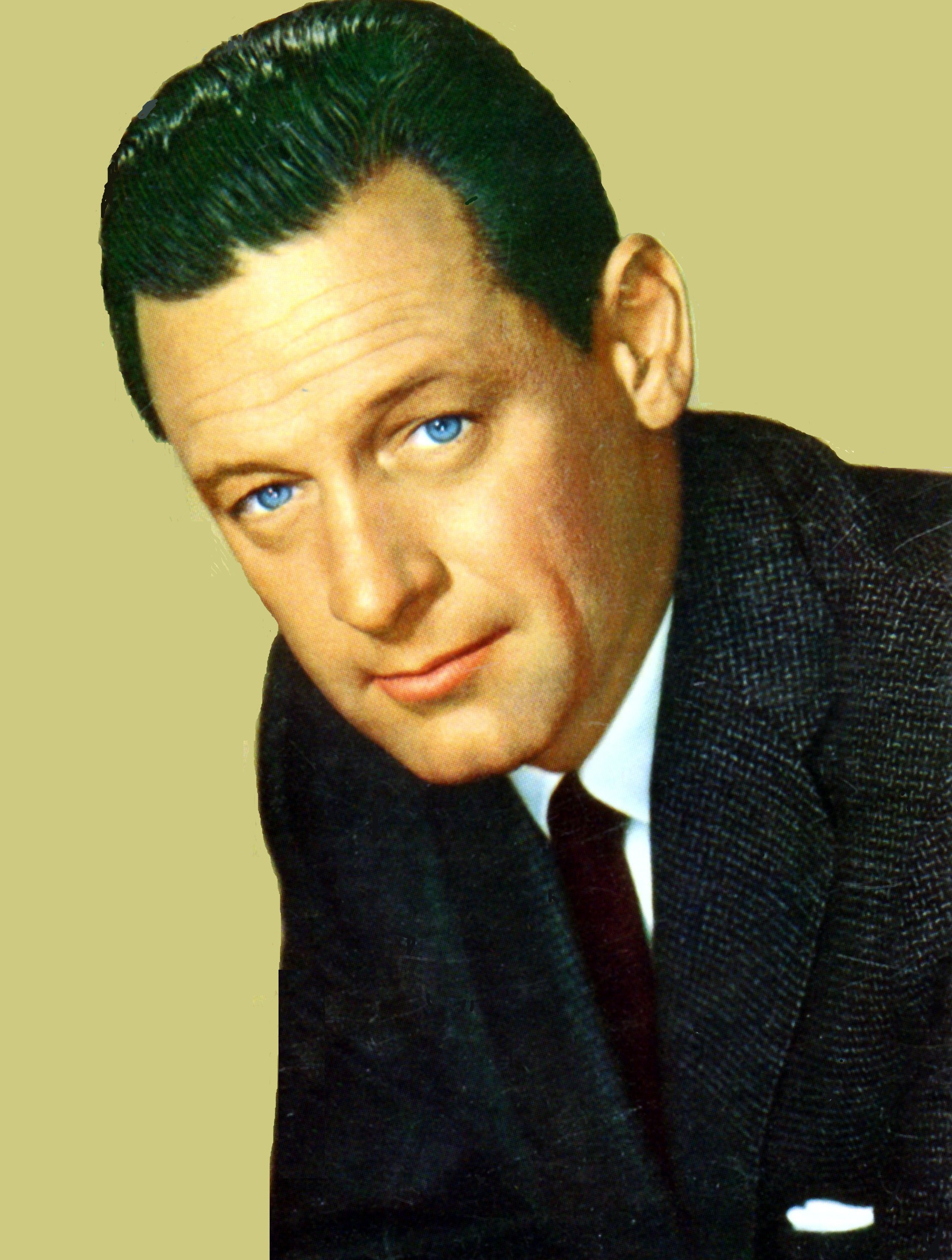
 Amanda S. Stevenson
Amanda S. Stevenson 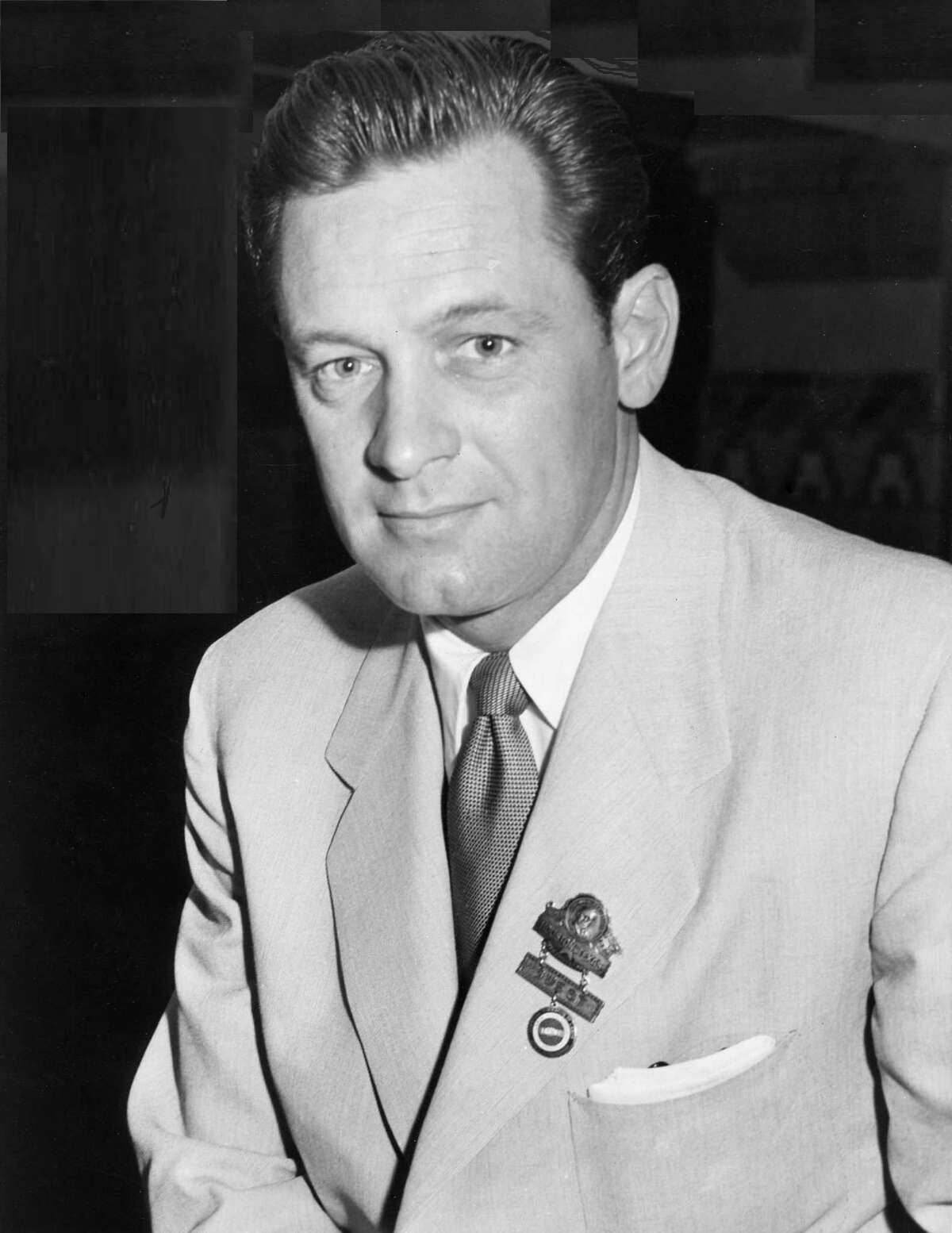
 Amanda S. Stevenson
Amanda S. Stevenson 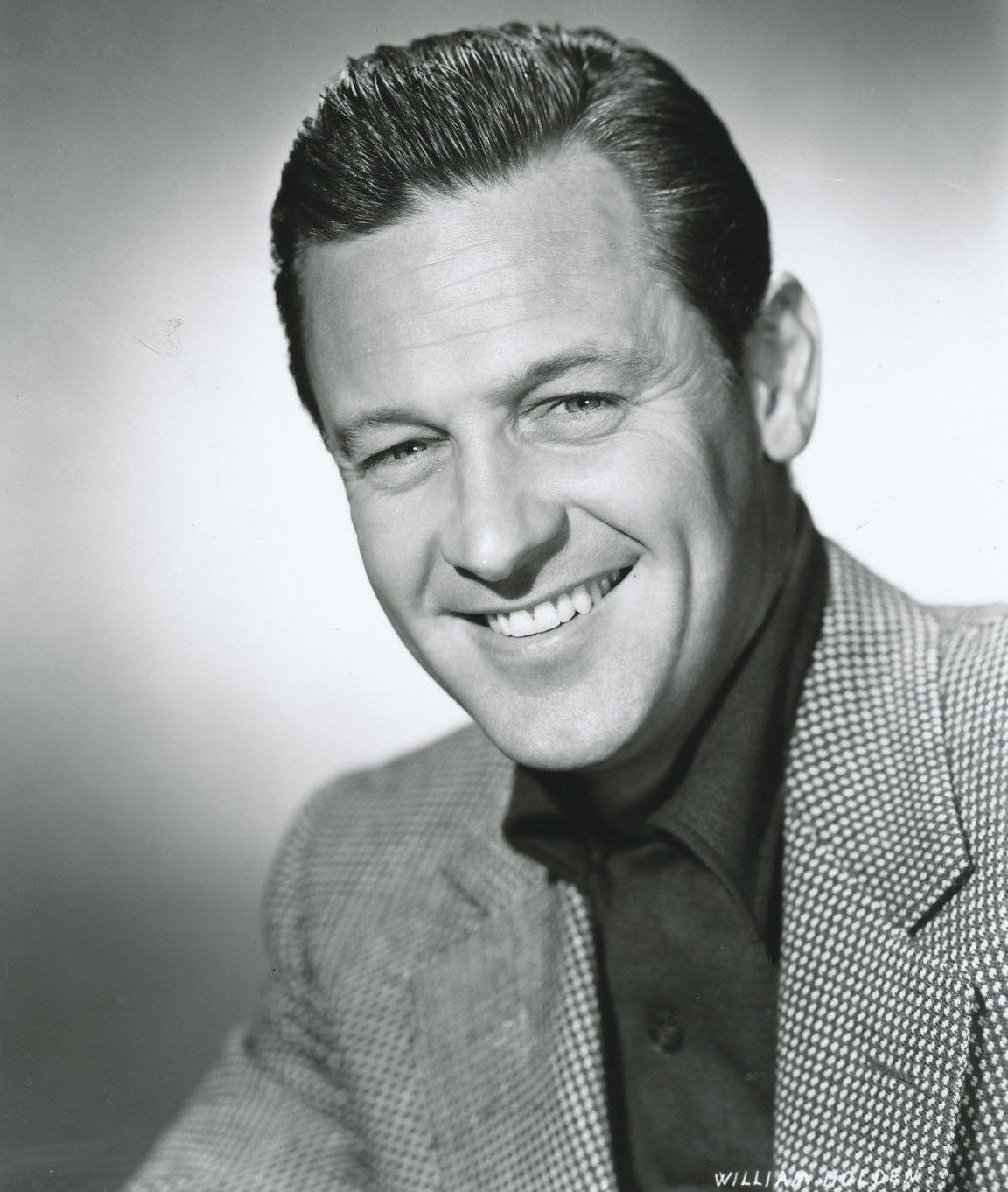
 Amanda S. Stevenson
Amanda S. Stevenson 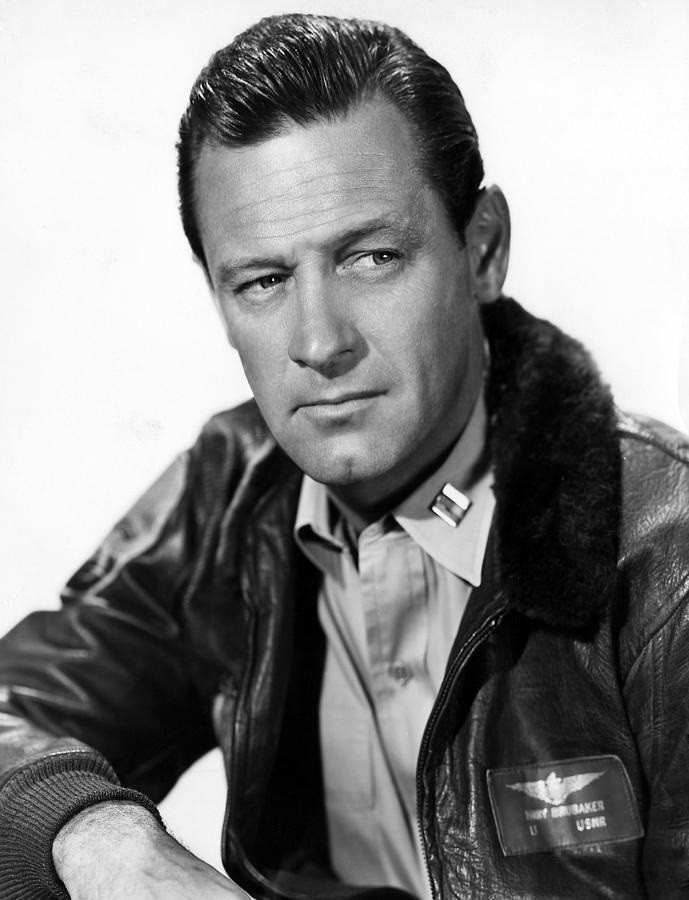
 Amanda S. Stevenson
Amanda S. Stevenson 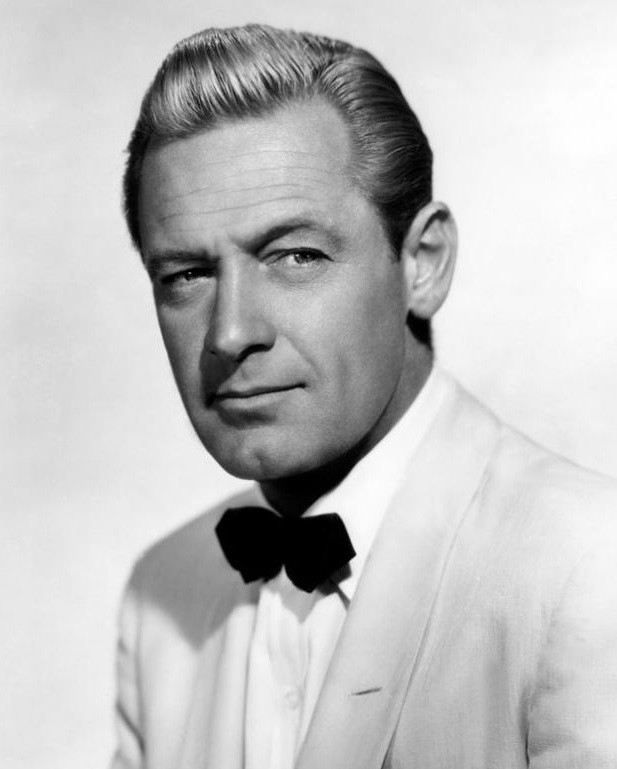
 Amanda S. Stevenson
Amanda S. Stevenson 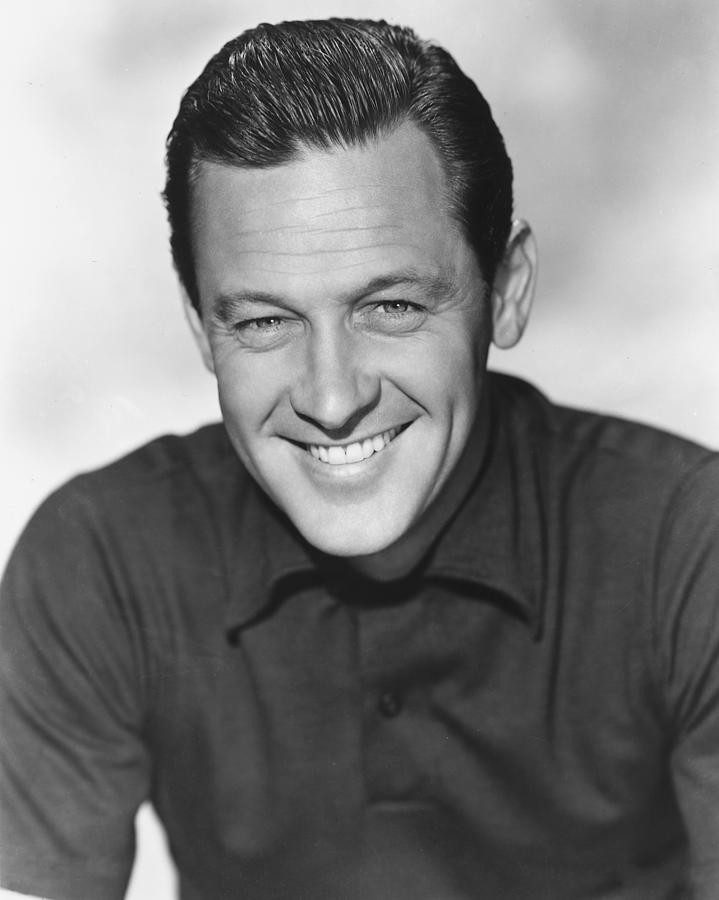
 Amanda S. Stevenson
Amanda S. Stevenson 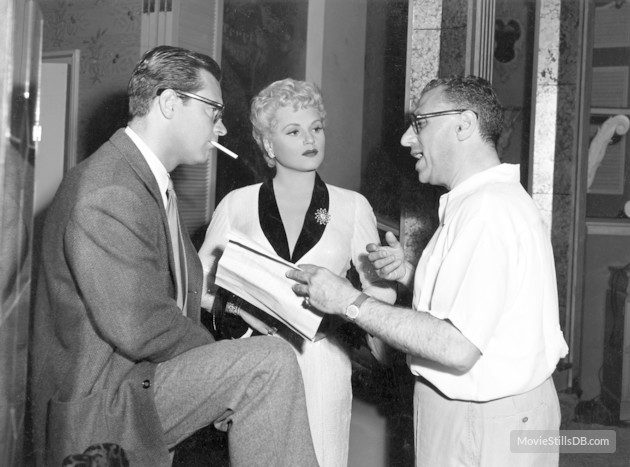
 Amanda S. Stevenson
Amanda S. Stevenson 